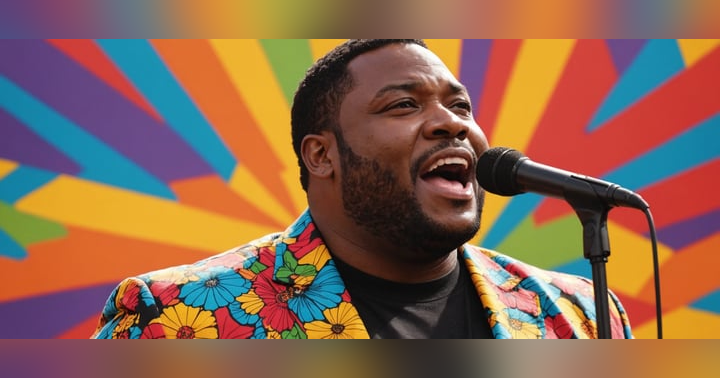Ethical Non-Monogamy: Challenging Traditional Relationship Norms with Honesty and Consent

Redefining Love: A Closer Look at Ethical Non-Monogamy
As relationship norms continue to evolve, more people are questioning traditional models of love and partnership. For many, monogamy is no longer the default pathway to fulfillment. Ethical non-monogamy (ENM)—a structure defined by openness, honesty, and mutual consent—is gaining traction as a legitimate and meaningful approach to relationships.
Jeff Hudson, a former television producer and Emmy-winning showrunner, has firsthand experience navigating ethical non-monogamy through his time in a throuple. Now based in Palm Springs and focused on writing, Jeff brings a storyteller’s lens to his memoir Deconstructing Us: My Trouble with a Throuple, sharing his personal experiences to explore how non-traditional love can foster personal growth and emotional resilience. “Communication is paramount,” he explains. “I think that being honest about what you're doing is truly key.”
What Is Ethical Non-Monogamy?
Ethical non-monogamy refers to romantic or sexual relationships in which all parties consent to having multiple partners. Unlike infidelity, which is rooted in secrecy and betrayal, ENM relies on transparency, mutual respect, and clearly communicated boundaries.
Though the configurations vary, the foundation remains the same: consent and communication. As Jeff puts it, “The big thing… is both parties truly need to be okay with what is going on, and they have to agree with what level of non-monogamy they're going to do.”
These arrangements challenge the assumption that love and loyalty are bound by exclusivity. Instead, ENM encourages emotional honesty, individualized agreements, and a commitment to each partner’s emotional safety.
Why Gay Men May Gravitate Toward ENM
While ethical non-monogamy is practiced across all identities, it has particular visibility within queer spaces, especially among gay men. From dating app profiles to community forums, open relationships are often normalized in ways that challenge heteronormative expectations of partnership.
Several factors contribute to this dynamic. For many men, there can be a clearer delineation between emotional connection and physical intimacy. Jeff notes, “I think men generally more so than women, can separate emotions from sex. I think that men could go out, have sex, come home to their person, and forget about what just happened.”
This ability to compartmentalize may make ENM feel more accessible or authentic for some gay men. Moreover, hookup culture within the queer community, facilitated by platforms like Grindr, Scruff, and Sniffies, can lower the barriers to sexual exploration. In this context, ENM isn't about rejecting commitment, but rather reimagining it through the lens of transparency and trust.
Dispelling Common Myths
Despite growing awareness, ethical non-monogamy remains misunderstood. Myths and assumptions often paint those in non-monogamous relationships as promiscuous, emotionally unavailable, or afraid of commitment. These stereotypes not only misrepresent the reality but also contribute to stigma and shame.
One of the most pervasive misconceptions is that ENM is a cover for cheating. In reality, ENM requires a level of honesty and intentionality that many monogamous relationships never confront. “Just because you're in a non-monogamous relationship doesn't mean you're going out and having sex every other day with somebody new,” Jeff says. “The big, big misconception is… people think that if you're in a non-monogamous relationship, that there's something wrong with the current relationship that you're in.”
As societal norms continue to shift, conversations around ENM are becoming more open and less judgmental. The practice is no longer relegated to the margins—it’s being acknowledged as a valid and healthy path for those who choose it.
Starting the Journey: Tips for Couples Considering ENM
Transitioning from monogamy to an ethically non-monogamous dynamic is not a decision to be made lightly. It requires emotional maturity, intentional communication, and an openness to growth—for both partners.
Start With Honest Communication
Before taking any physical steps, couples should engage in deep and ongoing conversations about their intentions, desires, and fears. Whether the arrangement involves threesomes, solo encounters, or long-term polyamorous partnerships, success begins with clarity and emotional transparency.
Even agreements like “Don't Ask, Don't Tell” still require communication to set expectations and boundaries. What matters most is that all individuals involved feel heard, safe, and supported.
Ease Into Exploration
Rather than jumping headfirst into solo experiences, many couples benefit from exploring ENM together at first. Sharing new experiences, like inviting a third partner for a threesome, can help partners build trust and navigate new dynamics as a unit.
For some, physical exploration may start with lighter forms of intimacy, such as kissing or mutual touching, before progressing further. Taking gradual steps gives couples time to reflect and recalibrate along the way.
Move at a Comfortable Pace
There’s no universal timeline for opening up a relationship. Building trust within an ENM structure often involves small steps, whether that’s trying different types of intimacy or establishing clear boundaries around emotional involvement. Regular check-ins can help partners stay connected and ensure everyone’s needs are being met.
Defining Love on Your Own Terms
As societal norms evolve, so too does the freedom to define relationships on our own terms. No longer confined to outdated templates rooted in heteronormative expectations, individuals and couples today have the agency to create relational dynamics that reflect their values, desires, and emotional truths. Whether that path leads to monogamy, ethical non-monogamy, or polyamory, the cornerstone of any healthy relationship remains the same: mutual respect, intentional communication, and emotional integrity.
Navigating these choices requires a blend of inner strength and practical discernment. It’s essential to approach relationship shifts with both emotional self-awareness and logical thinking, ensuring decisions are made from a grounded, thoughtful place, not from fear or uncertainty. Establishing clear boundaries and agreements can create a stable foundation, offering security and clarity even within the fluidity of non-traditional structures.
Ultimately, stepping into non-monogamy—or any relationship model—should be an empowered choice. When individuals honor their inner voice, uphold their needs, and engage in relationships with honesty and care, they build partnerships that are not only expansive but also rooted in trust and authenticity.
And remember: every day is all we have, so you've got to make your own happiness.
For more information on this topic, listen to Episode 148. Ethical Non-Monogamy: Redefining Relationships (with Jeff Hudson).
Tune into your favorite podcast player every Tuesday for new episodes of A Jaded Gay.


















